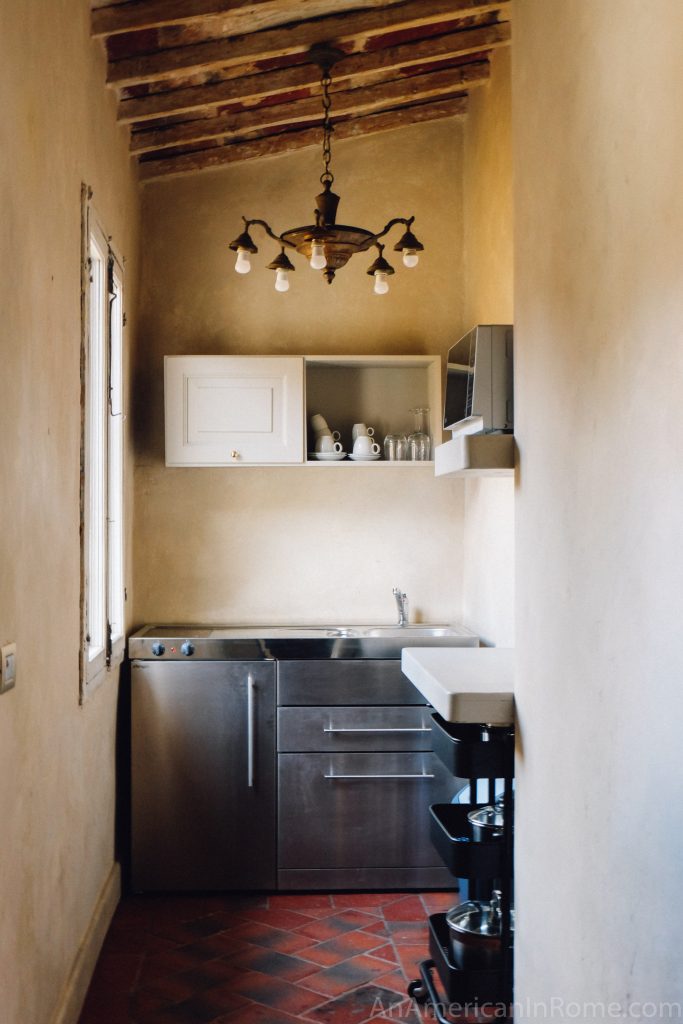I am not an Italian real estate expert, but I have had plenty of recent experience in moving in Rome. When I mentioned recently that we had considered signing an 8-year lease, some people outside of Italy seemed surprised. I thought I would share a quick guide to rental agreements in Italy.
Many Italian rental agreements are designed to protect the renter. For this reason, leases tend to be longer-term to avoid unnecessary rent hikes or evictions. It can be quite difficult to evict renters, actually, so landlords are known for being cautious. However, longer-term agreements offer tax breaks on rental income so they do have so incentive to offer them.
First, what do you need to rent in Italy? At the most basic level, you need Italian or international ID (such as your passport) and a codice fiscale (tax ID). You may see some listings which specify “solo referenziati.” This does not mean that you need “references” e.g. from former landlords. Instead, it more means you need to show proof of income. This could be a work contract or proof of a sufficient bank balance.
Most Common Rental Contracts in Italy
Transitorio
Transitory leases usually cannot be used to establish residency. They typically last 3-18 months and are not automatically renewed. This is essentially a short term lease.
3+2
These are a pretty common lease. The initial period is 3 years, and it then automatically renews for 2 more years at the same terms, so long as none of the parties objects to the automatic extension. You can terminate the lease early with 3-6 months notice (depending on what you negotiate into the lease agreement).
4+4
This is similar to a 3+2 but the period is 4 years, renewing for another 4 years automatically if none object. One thing to keep in mind is that the longer the rental agreement, the less likely it is that the apartment will be furnished. You may have to buy an entire kitchen (appliances and cabinets) or install light fixtures. Your contract should specify what is included in the house (see more below).

All the rental agreements, regardless of duration, should include:
- The names and codice fiscale of renters and landlords
- The exact address of the property
- If it is being rented furnished or unfurnished
- The exact rent
- The required notice period to terminate the agreement
- Subleasing terms/exclusions
- Optional: an annex of the expense that each party will be responsible for in terms of bills and maintenance etc
I had no contract, or transitorio rental agreements, for the first 4.5 years of my life in Italy. For my first 3+2, I negotiated a 2 month “diplomatic” notice period for terminating. For our second 3+2, we instead focused on negotiating the rent down and accepted the six month notice period. We figured that now that we have two kids, our timelines for major moves will be thought out pretty far in advance.

A few other things to know about renting in Italy:
- Your contract is only binding once it is registered with the Agenzia delle Entrate (the tax body in Italy). You will need the registered copy of the lease to do things like apply for residency.
- If you want to rent just a room, your contract will likely be informal. You will need a letter from the landlord to do things like apply for residency.
- Asking for a deposit of 2 months rent is common. This should be returned to you, minus expenses incurred by the landlord, after you move out.
- If you find an apartment that is represented by an agency, you will typically pay them one months rent as a finders fee. The good news is that they take care of all of the considerable paperwork.
- Asking for cash payments of more than €1000 is not legal. If you are being asked that, you are renting under the table.
- To give notice, you can’t simply email your landlord. You need to send a registered letter so you have proof they received your notice. You can find an example of the form letter here.
Italy renters- do you have anything to add or clarify?






Fantastic information! I’m building out a e-folder of all the details and tips people are posting like yours so when I do move I have a good understanding of what to deal with. Thank you for putting this together!
Thanks for this information . What is meant by transitory leases are not usually able to be used to establish residence. Does this mean that there are some exceptions? Thank you
I would also like to know the answer to this question!
What happens if my company orders me to relocate to another city and I only give two months notice? Do I lose my security deposit? Thanks for any feedback.
You would have to negotiate a different kind of contract. If you have a short term lease, you may be able to have just one month notice
Is there a penalty when you break your contract and leave early? If so, what is that penalty usually like?
No penalty if you give the agreed notice
Hi Natalie,
thank you for sharing! – Could you maybe provide us with some direction: we are in the midst of renting an appartment in Milan supported by an agency. Now we are being asked to pay the amount of 2 months rent before even having signed (nor seen) a rental contract. Can this be considered “normal” or should we suspect fraud? – Of course you are not a lawyer and I am not asking for legal advice, I am just confused as German law differs considerably from this practice. Thank you in advance!
Sabine
hey! great info, thanks. Just wondering with regards this line :
“I had no contract, or transitorio rental agreements, for the first 4.5 years of my life in Italy. ” ….so, there is another way of renting or you just weren’t renting at all for the first 4.5yrs? TIA 🙂
We did it more under the table — which also still happens! But both parties have less protection so I don’t recommend it.